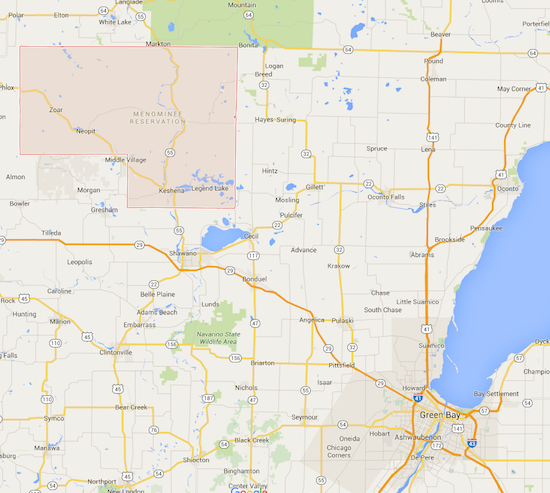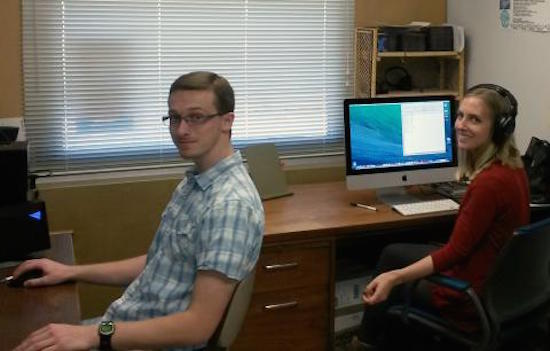Partnership to save Menominee language offers new resources for language teachers

Menominee County is home to the Menominee Nation. A partnership with UW–Madison aims to preserve the tribe’s language.
When someone uses the word “endangered,” images of an at-risk animal may quickly come to mind. But languages can also become endangered when their native speakers pass away or transition to other languages.
University of Wisconsin–Madison linguistics Professor Monica Macaulay, along with her partners at the Menominee Language and Culture Commission (MLCC), are working to maintain and revitalize Native languages — and they’re starting with new materials for tribal members who are teaching the next generation.
Posoh Mawanew Weyak
“Hello everyone” in Menominee
Funded by a grant from the Ira and Ineva Reilly Baldwin Wisconsin Idea Endowment, the Menominee Language Texts for Teachers project updates extensive Menominee texts originally published by linguist Leonard Bloomfield, putting them into the language’s modern spelling system, annotating them with grammatical information and retranslating them into colloquial modern English.
“This is something I’ve wanted to do for years,” Macaulay says. “Bloomfield’s book represents an amazing resource in terms of language and culture, but it’s incredibly user-unfriendly to anyone except a trained linguist. Making this kind of resource accessible to those whose culture it represents is something I think our field owes to the people we work with.”

UW-Madison graduate students Daniel Quigley and Sarah Lundquist contribute work to the Menominee Texts for Teachers project. Courtesy of the Language Institute
Macaulay and the MLCC started the project by working with shorter texts to strategize content and style and are gradually transitioning to longer texts with the help of the grant. Recently, the team began exploring options to record audio of the texts being read aloud and pair them with animation. Macaulay, who also serves as president of the Endangered Language Fund, says this media will work alongside written materials and make learning easier for students.
Though the project is predominantly focused on preserving the Menominee language in Wisconsin, language endangerment is a worldwide phenomenon. Macaulay says an estimated 50 to 90 percent of languages around the world will be lost by the end of the 21st century.
“These languages represent vast repositories of knowledge, history and culture, and humankind can’t afford to let that be lost,” she says. “This country went to enormous lengths to exterminate these languages, and I feel it’s my responsibility as a linguist and as a faculty member at this university to do everything I can to counteract that.”
—Nicole Hurley, Language Institute
Subscribe to Wisconsin Ideas
Want more stories of the Wisconsin Idea in action? Sign-up for our monthly e-newsletter highlighting how Badgers are taking their education and research beyond the boundaries of the classroom to improve lives.




